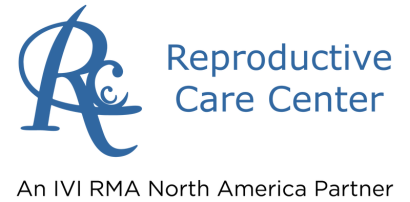With today’s advances in reproductive medicine, frozen (cryopreserved) sperm can help men, who might not otherwise have had the ability, become biological fathers.
Reproductive Care Center is a part of a Freezing Center Network comprised of top fertility centers around the country and is committed to making sperm banking services available and affordable, allowing men to preserve their fertility.
Overview
Men diagnosed with cancer, who are undergoing certain types of surgeries, who are involved in high-risk occupations, who are undergoing vasectomy, or who are already involved in fertility treatments should consider freezing sperm. Frozen sperm can be used in IUI and IVF to help conceive a biological child.
We recommend you discuss pre-treatment and post-treatment options with us to help you make an informed decision regarding preserving fertility.
Process
1
Appointment
Appointments are usually available within 1-2 days for men preparing for cancer chemo/radiation therapies due to the often urgent nature of beginning cancer treatments. The preference is to bank all specimens before treatment (or high risk exposure); however, recent studies have indicated viable samples may be collected after some forms of treatment have begun.
2
Sperm Collection
Ideally, a patient should not have any sexual activity for 2-5 days prior to each collection appointment. It is also important to have had at least one ejaculation between 5-10 days before the appointment. These time frames should not dictate the collection schedule for each patient but do help make sperm banking more successful. Generally, 2-3 specimen collections will be adequate for multiple pregnancy attempts utilizing assisted reproductive technologies. Patients are encouraged to collect and store as many samples as possible.
3
Testing & Storage
HIV (AIDS), hepatitis (B and C), and HTLV-I&II testing is required for sperm banking. These tests may be completed through our office. Following cryopreservation, specimens are shipped to ReproTech for long-term cryostorage. ReproTech is inspected and accredited by the American Association of Tissue Banks. See Reprotech.com for more details.
Costs
Costs for sperm storage vary depending on the number of times specimens are collected and typically include the following:
- New Patient visit to complete a medical history review and physician consultation (copay if the patient has insurance or cash price, if they do not)
- Infectious Disease testing (billed to insurance or paid to LabCorp at time of service for best pricing, if the patient is not insured)
- Collection Fee $553 per collection or pre-paid package prices at $838 for 3 collections, $1,400 for 5 collections, or $2,098 for 10 collections.
- Semen Storage Fee $582 annually* for liquid nitrogen tank or $873 annually for vapor tank (specimens not tested for infectious disease need to be stored in the vapor tank)
- The cost to use a RCC tank for transportation of embryos and/or semen is $280. RCC will place a $1,000 holding fee on your credit card to ensure the tank is returned same day, undamaged. There is a $100 fee per day if the tank is not returned same day.
- Shipping and handling costs may also be applicable if using a third party shipper such as Federal Express, USPS, etc.
* Storage is billed by calendar year. Partial year storage will be prorated.
Please note, price matching and other discounts do not apply to storage fees.
Technologies
Intracytoplasmic Sperm Injection (ICSI)
The introduction of ICSI revolutionized the treatment of male infertility allowing men with as few as one sperm to father genetically related children. Prior to ICSI, the only option for patients with moderate to severe male infertility was to use a sperm donor, donor embryos or adoption.
ICSI is conducted in conjunction with an IVF cycle. Once the follicles mature, the eggs are retrieved transvaginally using ultrasound guidance. Once retrieved they are transferred to the embryology laboratory where the eggs are separated from the follicular fluid.
Non-surgical testicular sperm extraction (TESE)
Non-surgical testicular sperm extraction (TESE) is a “closed procedure” (no incision is made in the scrotum). A thin core of testicular tissue is obtained using a small thin needle similar in size to one used for drawing blood. This procedure is usually performed under IV anesthesia for optimal comfort but can be performed under local anesthesia if preferred. The small tissue sample obtained is examined under the microscope in the laboratory for viable sperm. Identified sperm are extracted and injected into the egg using ICSI. Most of the time small numbers of motile sperm can be obtained.






